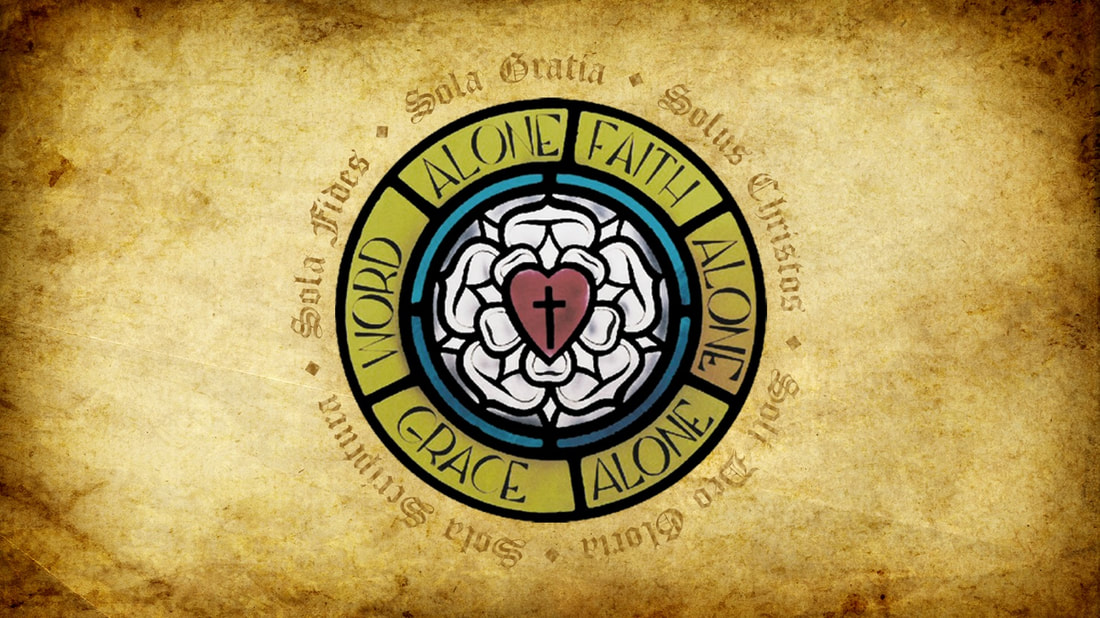|
On Sunday, we observed All Saints’ Day. Yes, I know that All Saints’ is technically on November 1st, but we follow the custom of many of our sister congregations and make the first Sunday in November All Saints’, regardless of when it falls. Liturgical purists, be gone!
This year, I did something new: I tackled The Beatitudes—well, one of them, anyway. I preached on Christ’s promise that, despite the persecution that His people will face, they will receive a great reward in His coming kingdom. You can listen to the sermon here. I mention that, because I originally thought I was going to preach on this: “Blessed are those who hunger and thirst for righteousness, for they shall be filled” (Matthew 5:6). I’ve been thinking about this, and after I did my Bible reading today, decided to post some thoughts on this promise. At a surface level, these words are pretty clear: those who desire to be filled with righteousness will get it. But is Jesus just using hunger and thirst a metaphor, or is there something more to it? Earlier, I brought up my daily Bible reading as part of the impetuous for writing this post, because this image came up again as I was reading Proverbs 13:25, “The righteous eats to the satisfying of his soul, but stomach of the wicked shall be in want.” Here, Solomon, the author of this proverb, makes the same point, connecting the satisfaction of the righteous with the image of eating. Returning back to the Sermon on the Mount (Matthew 5-7), Jesus says later on in the same sermon that started with the Beatitudes, “…do not worry about your life, what you will eat or what you will drink; nor about your body, what you will put on. Is not life more than food and the body more than clothing?” (Matthew 6:25). He then concludes this section, “Therefore do not worry, saying, ‘What shall we eat?’ or ‘What shall we drink?’ or ‘What shall we wear?’ For after all these things the Gentiles seek. For your Heavenly Father knows that you need all these things. But seek first the kingdom of God and His righteousness, and all these things shall be added to you” (Matthew 6:31-33). St. Paul also connects food to righteousness: “Now may He who supplies seed to the sower, and bread for food, supply and multiply the seed you have sown and increase the fruits of your righteousness…” (II Corinthians 9:10). He also speaks of Christ, our righteousness like this: “For indeed, Christ, our Passover, was sacrificed for us. Therefore let us keep the feast, not with old leaven, nor with the leaven of malice and wickedness, but with the unleavened bread of sincerity and truth” (I Corinthians 5:7b-8). What were the people of God to do with the Passover? Eat it, of course! It’s no surprise, then, that Jesus actually gives righteousness to eat and drink in the fulfillment of that Passover. “Take, eat; this is My body. Take, drink; this is My blood.” Jesus, who was born in The House of Bread (Bethlehem) and calls Himself the Bread of Life (John 6), gives His flesh and blood to eat and drink to satisfy those who hunger and thirst for righteousness.
0 Comments
Leave a Reply. |
Rev. Jordan McKinleyI’m pastor at Trinity Lutheran Church in Vallonia, Indiana. I’m the husband of a godly and beautiful wife (Andrea), and father to three faithful and slightly crazy kids (Naomi, Collin, and Theodore). I read the Bible professionally. Contact Pastor:
|
